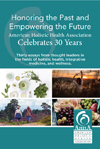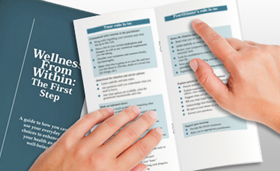Search Results
COVID-19 booster shots in U.S. – Issue
![]() Within a one week time period in late September of 2021, important federal government agency meetings reviewed scientific data and made recommendations related to the future of COVID-19 booster shots for the American public. The following information was compiled to assist you in being able to comprehend what is going on and sift through the vast amounts of data that became available.
Within a one week time period in late September of 2021, important federal government agency meetings reviewed scientific data and made recommendations related to the future of COVID-19 booster shots for the American public. The following information was compiled to assist you in being able to comprehend what is going on and sift through the vast amounts of data that became available.
* The Food and Drug Administration (FDA) has the task to approve vaccines. The Vaccines and Related Biological Products Advisory Committee (VRBPAC) met September 17 to make non-binding recommendations to the acting FDA commissioner regarding vaccine booster shots. The VRBPAC’s final vote was for extra vaccine dose only for those who are age 65 or older or who run a high risk of severe disease. The acting FDA commissioner sent the official FDA authorization for booster shots to the CDC on September 22. This included the VRBPAC recommendations for boosters for:
1) individuals 65 years of age and older
2) individuals 18 through 64 years of age at high risk of severe COVID-19
3) individuals 18 through 64 years of age whose frequent institutional or occupational exposure to SARS-CoV-2 puts them at high risk of serious complications of COVID-19
* The Centers for Disease Control and Prevention (CDC) has the task to map out the use of FDA approved vaccines. The Advisory Committee on Immunization Practices (ACIP) met September 22 and 23 to make non-binding recommendations to the CDC director on whether or not the CDC should recommend use of the vaccine booster shots the FDA had approved. The recommendations were for a single Pfizer-BioNTech COVID-19 vaccine booster dose at least six months after the primary series under the FDA’s Emergency Use Authorization for:
1) persons aged >65 years and Long Term Care Facility residents
2) persons aged 50-64 years with underlying medical conditions
3) persons based on individual benefit and risk who are aged 18-49 years with underlying medical conditions
The ACIP voted to not include persons aged 18-64 years who are in an occupational or institutional setting where burden of COVID-19 infection and risk of transmission are high.
The next step is up to the CDC director, who may align with the ACIP or add back boosters for healthcare workers, before passing on the final CDC recommendations to the Executive Branch to influence policy making. The CDC director’s decision could come as early as September 24.
Keep in mind that the Executive Branch declared in August 2021 that a national campaign to administer booster shots would begin the week of September 20 based on previous sign offs by the FDA and CDC.
The VRBPAC and ACIP meetings involved a series of presentations from government and industry experts, plus brief public comments with a wide variety of viewpoints. Media articles and videos offer you access to this important information.
You will note:
• The meetings begin with key questions to be addressed. These questions can be significantly modified before the final committee vote.
• Scientific studies can be interpreted differently.
• Age-related risks need credible, specific research results, but sometimes this research is only extrapolated.
• If a specific company’s vaccine approval is still pending, it may not be covered by the recommendations. Thus, the current vaccine boosters under consideration are only for those from Pfizer-BioNTech.
• Weighing potential benefits of a vaccine vs. potential risks can be handled in a variety of ways.
• Some scientific results are devalued because from outside of the U.S.
• Some negative reactions to vaccines are not being researched.
• Some briefing documents say “the FDA has not independently reviewed or verified the underlying data or their conclusions.”
• One FDA leader cautioned against equity as determinant in distribution of available vaccines, such as giving priority to people in developing countries before using vaccine supply for third shots for those in the U.S.
Issue: What is the future of COVID-19 booster shots?
AHHA strives to maintain a neutral position on issues and views knowledge as power. For those interested in this month’s issue, the articles below were selected to support your understanding of this complex matter as federal government regulations evolve and are finalized.
FDA
The VRBPAC meeting video is available for you to explore online:
Virtual Meeting: Vaccines and Related Biological Products Advisory Committee (9/17/21) [08:09:40] [Open Public Hearing speakers 04:00:52 to 04:59:58]
FDA
Tracking the FDA advisory panel meeting on Covid-19 booster shots (9/17/21)
by Helen Branswell, Matthew Herper
STAT
Top doctors say not so fast to Biden’s boosters-for-all plan (9/18/210)
9NEWS
US Panel Recommends Pfizer Covid Boosters For Only Elderly, People At High Risk (9/18/21)
NDTV
FDA Authorizes Booster Dose of Pfizer-BioNTech COVID-19 Vaccine for Certain Populations (9/22/21)
FDA
CDC
The ACIP meetings videos are partially available for you to explore online:
Advisory Committee on Immunization Practices-ACIP (9/23/21)
[04:48:45] [Open Comments 05:17 to 40:01]
PBS News Hour
Advisory committee recommends wide swath of Americans be offered Covid-19 vaccine boosters (9/23/21)
by Helen Branswell
STAT
CDC panel approves boosters for elderly, holds back on health care workers (9/23/21)
by Lauren Gardner
Politico
Agenda of Advisory Committee on Immunization Practices – September 22-23, 2021
CDC
ACIP Presentation Slides: September 22-23, 2021
CDC
We encourage you to post your comments. You are also invited to share additional resources you have found relating to this issue.




















